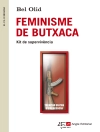Intersex Matters analyzes the medicalization of people diagnosed as ‘intersex, ‘ which is an umbrella term for individuals born with sexual anatomies various societies deem to be nonstandard. Through an examination of medico-scientific, scholarly, political, and popular archives from the mid-twentieth century to the present, Rubin argues that the medical regulation of atypical sex is fundamentally a feminist and a queer issue, and an intersectional and transnational one as well. Critical attention to intersex lives, bodies, narratives, and activisms profoundly reconfigures contemporary paradigms of sex/gender, race, health, normality, biopolitics, and human rights. Rubin charts the emergence of intersex rights activism in the global north and global south, thus demonstrating the value of understanding intersex experience when rethinking the vicissitudes of body politics in a globally interconnected world.
Table of Content
Acknowledgments
Introduction: Intersex Matters
1. “An Unnamed Blank That Craved a Name”: A Genealogy of Intersex as Gender
2. Intersex Trouble in Feminist Studies
3. “Stigma and Trauma, Not Gender”: A Genealogy of US Intersex Activism
4. Provincializing Intersex: Transnational Intersex Activism, Human Rights, and Body Politics
5. Intersectionality and Intersex in Transnational Times
Conclusion: Thinking Intersex Otherwise: Disorders of Sex Development, Social Justice, and the Ethics of Uncertainty
Notes
Bibliography
Index
About the author
David A. Rubin is Assistant Professor of Women’s and Gender Studies at the University of South Florida.











